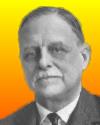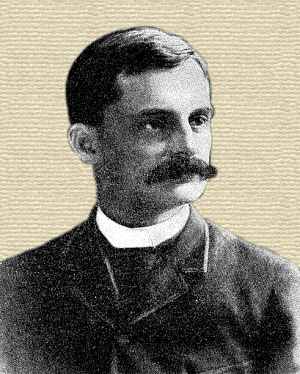 (source)
(source)
|
Elihu Thomson
(29 Mar 1853 - 13 Mar 1937)
English-American engineer and inventor whose discoveries in the field of alternating current phenomena led to the development of successful alternating current motors, among hundreds of patents.
|
Science Quotes by Elihu Thomson (3 quotes)

Elihu Thomson
If the question were, “What ought to be the next objective in science?” my answer would be the teaching of science to the young, so that when the whole population grew up there would be a far more general background of common sense, based on a knowledge of the real meaning of the scientific method of discovering truth.
— Elihu Thomson
Marion Savin Selections from the Scientific Correspondence of Elihu Thomson (1971), v.
Shall an invention be patented or donated to the public freely? I have known some well-meaning scientific men to look askance at the patenting of inventions, as if it were a rather selfish and ungracious act, essentially unworthy. The answer is very simple. Publish an invention freely, and it will almost surely die from lack of interest in its development. It will not be developed and the world will not be benefited. Patent it, and if valuable, it will be taken up and developed into a business.
— Elihu Thomson
Address as M.I.T. acting president, to the graduating class (11 Jun 1920). Published in Massachusetts Institute of Technology, Technology Review (Jul 1920), 22, 420.
The so-called ‘crank’ may be quite original in his ideas. … Invention, however, in the engineering sense involves originality; but not that alone, if the results are to be of value. There is imagination more or less fertile, but with it a knowledge of what has been done before, carried perhaps by the memory, together with a sense of the present or prospective needs in art or industry. Necessity is not always the mother of invention. It may be prevision.
— Elihu Thomson
Address as M.I.T. acting president, to the graduating class (11 Jun 1920). Published in Massachusetts Institute of Technology, Technology Review (Jul 1920), 22, 419-420.
See also:
- 29 Mar - short biography, births, deaths and events on date of Thomson's birth.
- Elihu Thomson - Development of Electric Railways (1888)
- Charles Van Depoele - Biography from The Mechanical News (1892).
- 27 Apr - short biography, births, deaths and events on date of Charles Van Depoele's birth.
- Innovation as a Social Process: Elihu Thomson and the Rise of General Electric, by W. Bernard Carlson. - book suggestion.
 In science it often happens that scientists say, 'You know that's a really good argument; my position is mistaken,' and then they would actually change their minds and you never hear that old view from them again. They really do it. It doesn't happen as often as it should, because scientists are human and change is sometimes painful. But it happens every day. I cannot recall the last time something like that happened in politics or religion.
(1987) --
In science it often happens that scientists say, 'You know that's a really good argument; my position is mistaken,' and then they would actually change their minds and you never hear that old view from them again. They really do it. It doesn't happen as often as it should, because scientists are human and change is sometimes painful. But it happens every day. I cannot recall the last time something like that happened in politics or religion.
(1987) -- 


